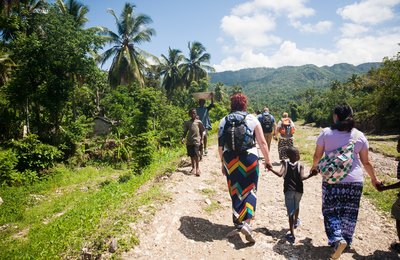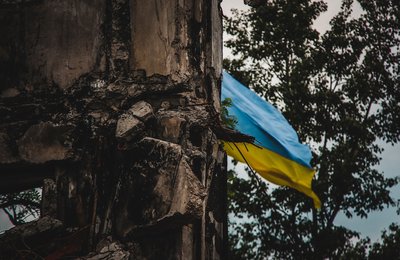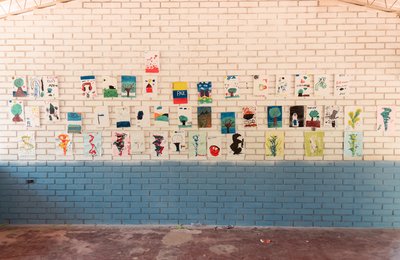
50.21% of the 12,808,858 Colombians that voted in a national referendum to approve the peace agreement between the Colombian National Government and the armed group FARC, one that would end fifty years of armed conflict, marked NO on their ballot. They did not support the peace agreement. 49.78%, marked YES, they did.
The result of this historic referendum is that four years of peace negotiations are now on hold.
These close numbers are an eerie reminder of the divided country represented by recent votes in the UK to leave the European Union, with England voting 53.4% to leave, and 46.6% to stay, and adding a sense of foreboding to what might await us in the upcoming United States Presidential elections.
Now, I, an American working in Medellin for the past six years, am left with more questions than answers about Colombia´s future. Of the 46% of Medellin’s electorate that cast their votes, 62.97% of voters were against the peace agreements and only 37.02% voted with a Yes.
Medellin: a theatre of peace?
You would not have guessed that judging by the atmosphere where I watched the referendum numbers arrive. A historic theatre in Medellin's downtown opened up a screen to project the results in the street. Maybe a hundred people gathered holding white flowers and filled with hope.
When the results were transmitted, the atmosphere was one of disbelief and sadness. A stunned silence shifted over those gathered, and many began to cry. The Director of the theatre stepped on to the stage. “My own mother and brother voted against the agreement” he said. His message was a brave one – despite this grave disappointment, he said, the country´s job must now be to understand why unity must win out over division. Shortly after, the theatre released hundreds of multi-colored butterflies. Their release had been intended for the moment of celebrating the Yes.

As the small butterflies disappeared soundlessly into a grey sky, I couldn´t tell if they represented the fleeting dream of peace or were a symbol for renewed hope. Either way it became evident that Colombia´s real work is just beginning.
The Colombian vote shows us that half the population is not ready to move forward, even if half is. And when half the country speaks, it forces you to listen.
If the tables were turned, and the yes vote had been the 50.21%, it would have represented a volatile victory. Amid such division, moving forward to face the immense challenges of a peace process would have been difficult, especially when trying to nurture the trust necessary for the safe re-integration of the approximately 8,000 FARC guerillas back into society.
Where next? The need for to listen – and understand
Colombia's No campaign has many underlying political interests at heart and it is also true that it has used countless lies to manipulate public opinion. But on the other hand, votes such as this one force us to take responsibility, to go one step further in a deeper exploration of why. After all, No voters are not strangers but mothers, brothers, uncles, cousins, friends and colleagues.
So at this moment Colombia must embark on perhaps the most difficult phase of the peace process to date. Which is truly trying to understand and acknowledge why other people think the way they do.
Speaking to Colombians in the streets in the weeks before the vote, I received mixed responses about how they felt about the peace deal, none of them positive. I heard things like “I will vote no. There is so much inequality. For us a peace agreement will change nothing.” Or “Peace begins with oneself. You can´t just have a peace agreement and expect things to change.” Or “The system is so corrupt. I don´t want to be involved."
Leaving the negotiating table behind
Could it be that the decades of war, poverty and inequality have caused such bitterness and anger that faith in the country´s democratic system has been irreparably damaged? Could it be that Colombians have lost so much in a lifetime of conflict that putting at risk this opportunity is like losing something that was never theirs to begin with? Or could Colombians have been victimized for so long that now they choose to exert their citizen power the only way they can, by saying they will have no part of the established system.
I do not know. But questioning how the other half lives is pertinent to countries around the world. The referendum revealed what many Colombians would like to ignore, a divided country that is not ready for peace. The future feels grim, but perhaps President Santos’s courage to open up this bold platform for citizens to express themselves will be exactly what saves Colombia from another failure. Next steps in the peace process have to involve leaving the negotiation table and beginning conversations where people look each other in the eyes and trust themselves to a sincere dialogue with people they do not agree with, to opening their hearts to listen and value what others think and feel.
Perhaps the Colombian referendum can also teach us something in the context of the American elections. Even if Hillary Clinton wins, the vote might be close, just as the Colombian and Brexit referendums were, and like in Colombia, a country so divided cannot move forward together towards building a sustainable peace. Colombia shows us that it is a risk to ignore the voices we deem unpleasant, uncomfortable or even dangerous. Instead we must find ways to listen to what is underneath. No matter the results of the Presidential elections, the reasons behind those voices will not disappear.







